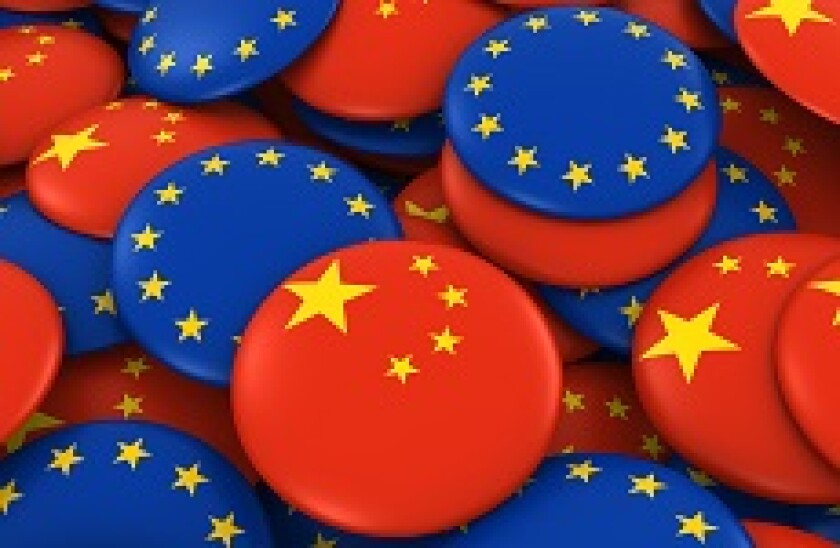Chinese issuers are not strangers to the euro bond market. Many have been borrowing in the currency for years. But the market has neither seen the same level of volumes as in the dollar market, nor the breadth of borrowers that China has to offer. The bulk of euro fundraising has come from Chinese banks, usually selling their bonds to the European arms of other mainland banks.
However, that is no longer the case. On Tuesday, the Chinese government launched a landmark multi-tranche euro issue — its first euro bond since 2004. The sovereign wants to benefit from the pricing and diversity Europe has to offer, while also making a policy statement for other issuers to follow.
But beyond following in the sovereign’s footsteps, the euro market offers Chinese issuers other advantages.
With Chinese companies increasingly holding stakes in European enterprises, euros have become a natural fit. Just look at Fosun International, which raised €400m in its first public euro bond sale last week. The conglomerate has extended its reach beyond its home market and now holds stakes in a number of European ventures, including Club Med and clothing brand Wolford. It makes sense for the company to raise euros to meet its financing needs in Europe.
The euro market also offers borrowers a new funding avenue — something that is increasingly important given trade related tensions between the US and China. If the dollar market shuts for any reason, mainland companies can turn to their euro relationships to get deals going.
It also, of course, doesn’t hurt that euro bonds offer Chinese companies some much-needed diversification away from dollars. A banker on Fosun's trade, for instance, said some of the investors that turned out for the euro deal were ones he had never heard of before. They exclusively focused on euros and did not dabble in dollars.
The appetite from these accounts is certainly there. Bankers say that European investors often ask about getting their hands on new Chinese paper. The order book for Fosun reached €2.5bn at its peak.
With such benefits, one may assume that issuers will have to compromise on pricing for their bonds, but that wasn't the case with Fosun at least. With interest rates remaining suppressed, the euro market offers attractive pricing. Fosun's 3.5 year trade was sold at 4.35%, while its 2023 dollar bond in June was printed at 6.75%, and a 2021 note in January at 6.87%. With a low interest rate environment in Europe set to continue, the market’s appeal is set to hold going into 2020.
Not every Chinese issuer will find euro deals to be advantageous, of course, but the market is clearly ready to embrace more borrowers. If companies keep a close eye on arbitrage opportunities, even those without euro needs may find the market enticing.
Those that choose to take advantage of the diversification option and establish themselves in the euro market will benefit in the longer run if dollar funding becomes more difficult. The early efforts can only pay off.

